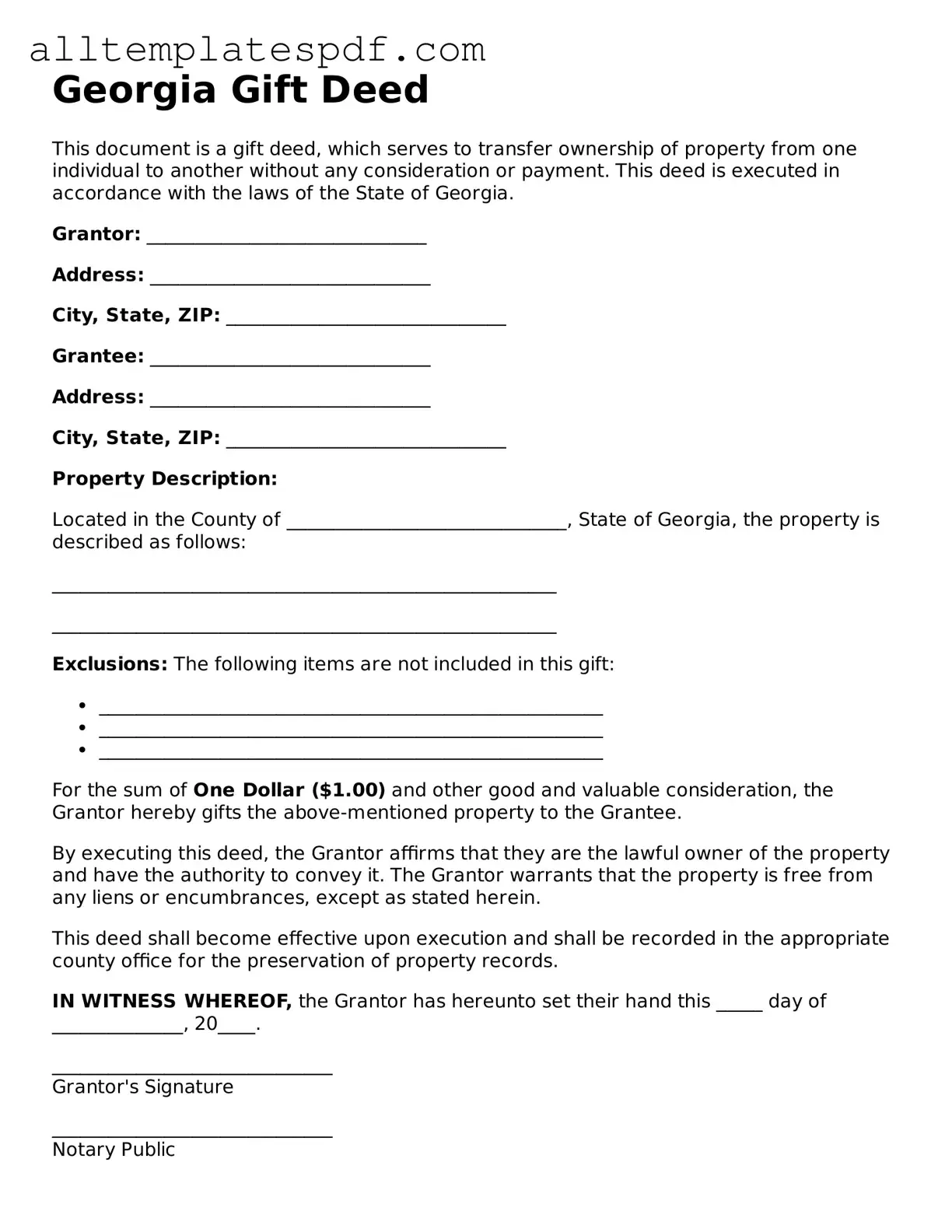Filling out a Georgia Gift Deed form can seem straightforward, but many individuals make common mistakes that can lead to complications down the line. Understanding these pitfalls can help ensure that the process goes smoothly and that the gift is legally recognized. Here are nine mistakes to avoid.
One frequent error occurs when the names of the parties involved are not accurately recorded. It’s essential to provide the full legal names of both the donor (the person giving the gift) and the recipient (the person receiving the gift). Omitting middle names or using nicknames can lead to confusion or disputes about ownership later on.
Another common mistake is failing to include a legal description of the property being gifted. Instead of simply stating the address, the form should contain a detailed description that may include lot numbers, boundaries, and other identifying information. This clarity helps prevent any misunderstandings about what is being transferred.
People often neglect to check the signature requirements. The Gift Deed must be signed by the donor, and in some cases, a witness or notary may also be required. Not adhering to these requirements can render the document invalid, making it crucial to follow the guidelines closely.
Another mistake is not considering the tax implications of gifting property. While gifts under a certain value may not incur taxes, larger gifts can have significant tax consequences for both the giver and the receiver. Consulting a tax professional before completing the deed can help avoid unexpected liabilities.
Some individuals forget to include the date of the gift. This detail is important as it establishes when the transfer took place. Without a clear date, there may be confusion about the timing of the gift, especially if other legal matters arise later.
Additionally, failing to file the Gift Deed with the appropriate county office is a common oversight. After the form is completed and signed, it should be recorded to provide public notice of the transfer. Neglecting this step can lead to issues with property rights in the future.
Another mistake involves not ensuring that the donor has the legal capacity to make the gift. If the donor is not of sound mind or is under undue influence, the validity of the gift could be challenged. It’s important to assess the donor’s mental state before proceeding.
People sometimes overlook the importance of reviewing the entire form before submission. Errors in spelling, missing information, or incorrect details can lead to delays or legal challenges. Taking the time to carefully review the form can save a lot of trouble later.
Finally, some individuals fail to keep a copy of the completed Gift Deed for their records. Having a copy is essential for future reference and can help resolve any disputes that may arise. It’s advisable to store the document in a safe place where it can be easily accessed when needed.
Avoiding these common mistakes when filling out a Georgia Gift Deed form can help ensure that the process is completed correctly and that the gift is recognized legally. Taking the time to double-check details and understand the requirements can make a significant difference in the outcome.

